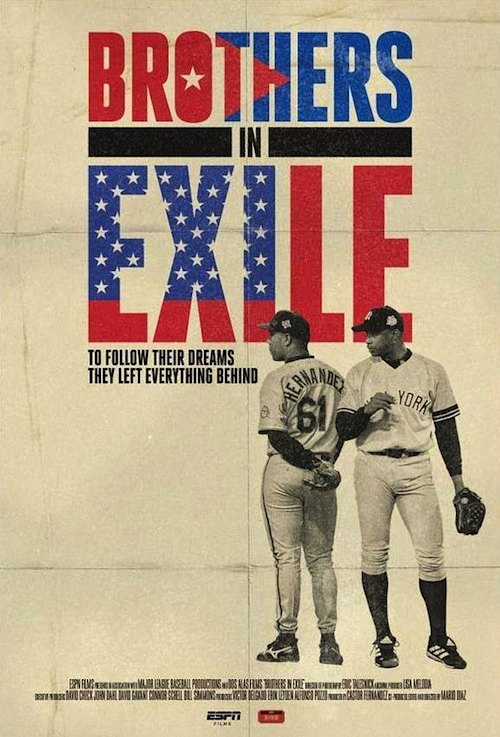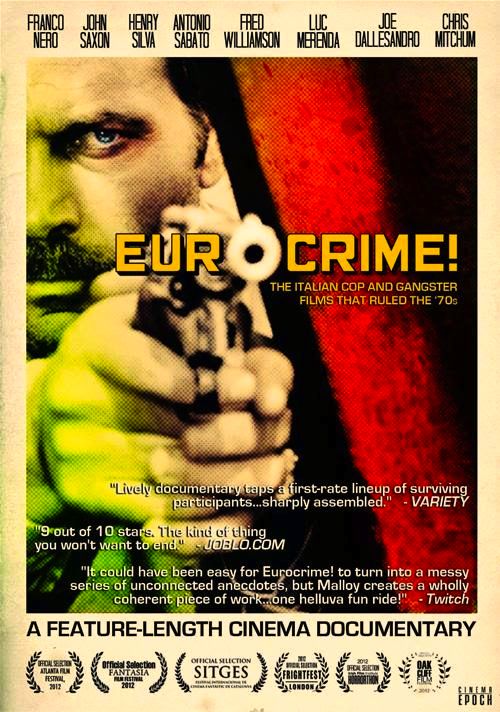By Joe Bendel. New Yorkers would recognize Orlando “El Duque” Hernandez’s high leg kick anywhere. His half-brother Livan did not do so badly for the Florida Marlins, either. For the Cuban pitchers, winning World Series championships was the easy part. Escaping Castro’s police state was much more difficult. Their journeys to freedom and a better life are chronicled in Mario Diaz’s Brothers in Exile, which airs this coming Tuesday as part of ESPN’s 30 for 30 film series.
As half-brothers, Orlando and Livan Hernandez did not grow up together, but baseball clearly ran in their mutual father’s side of the family. Orlando quickly made a name for himself, first as the ace of the Havana Industriales and then with the Cuban national team. That name would be “El Duque.” From time to time, he would visit his younger half-brother, giving him tips. That clearly panned out. Unfortunately, when the state athletic commissars and minders finally pushed Livan past his breaking point with their controls and humiliations, his defection caused profound problems for El Duque. The Party security apparatus and their plain clothes thugs just automatically assumed El Duque was in on his plans.
 Banned from baseball, shunned by society, and frequently harassed on the streets, El Duque feared for his safety and his family’s future. Unfortunately, thanks to the Clinton Administration’s changes in immigration policy (never addressed in Exile), it had become much harder for Cuban refugees to be granted asylum status, while it was still just as treacherous navigating the Straits of Florida.
Banned from baseball, shunned by society, and frequently harassed on the streets, El Duque feared for his safety and his family’s future. Unfortunately, thanks to the Clinton Administration’s changes in immigration policy (never addressed in Exile), it had become much harder for Cuban refugees to be granted asylum status, while it was still just as treacherous navigating the Straits of Florida.
The truly perilous circumstances of El Duque’s flight for freedom are perhaps not a scoop per se, but they are certainly not well understood by the general baseball public. Frankly, he is lucky to be alive. Likewise, the role John Cardinal O’Connor and the New York Catholic diocese played facilitating El Duque’s eventual reunion with his family will be eye-opening stuff for many viewers.
To his credit, Garcia is pretty forthright documenting the persecution directed at El Duque and his family by the Party and its enforcers. However, he essentially lets Castro and his fanatical devotion to a command-and-control ideology off the hook for the mass suffering experienced during the so-called “special period.” Regardless, some of the best sequences explore the significance of the Hernandezes’ successes for the Cuban-American community.
Exile has a strong emotional kick, but it also brings back many fond memories for Yankees and Marlins fans. In fact, some of the best stories come from their respective glory year catchers, Jorge Posada and Charles Johnson. Ultimately, it expresses the value of baseball and freedom, two things that have a prized place within the Cuban-American experience. Recommended as a solid installment in the first-rate 30 for 30 series, Brothers in Exile premieres this Tuesday (11/4) on ESPN.
LFM GRADE: B
Posted on October 31st, 2014 at 5:18pm.
